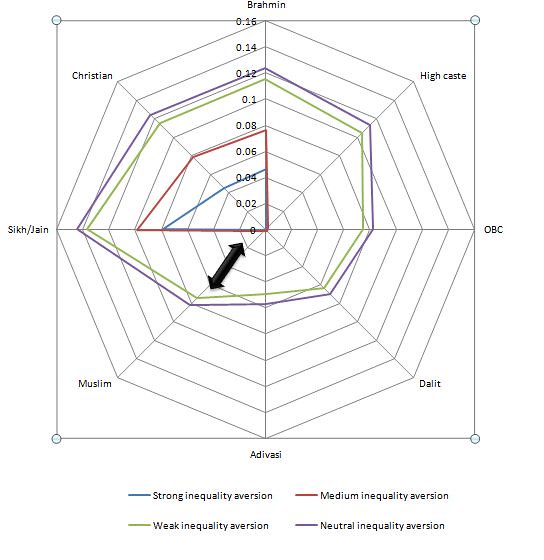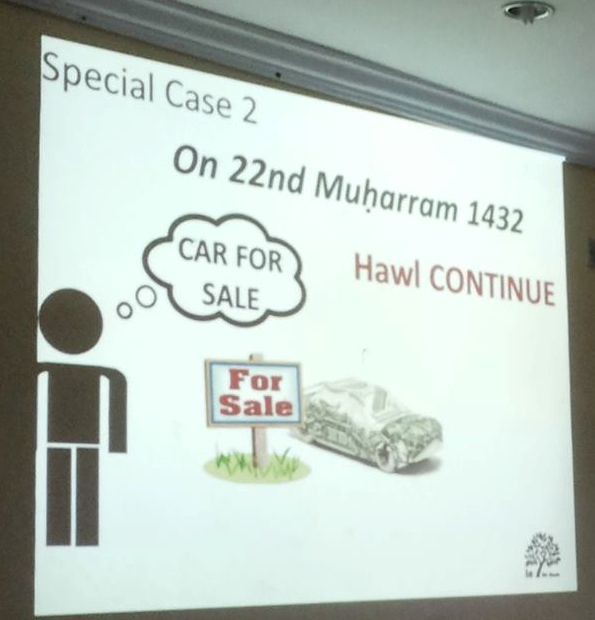By Althaf Shajahan,
Running regressions and making sense of data is my job. We were working on a sort of data analysis where we had to consider different socio-economic groups and using data on three variables, viz. household income, consumption and assets which would together measure something we may term us material well-being and compute an inequality adjusted index value for each group. As expected, Dalits, Adivasis and Muslims fared the worst. Yeah! What’s new in this? Sachar report and every possible report speak about this. Well here, the index needs to be explained. Our index measures household indicators of well. While it aggregates across all the members of the groups, it discounts for the inequality among the members. (Refer the original computations in the figure below ). While searching the data for Muslim cases, I did see observations on Muslim community members who belong to the top percentiles and quintiles of either income or wealth. It is this inequality that makes me mull over. Intra-community inequality is not the concern of the state. While it is possible for Muslims as citizens of this nation to ask for state support and schemes citing their vulnerability as much as Dalits or Adivasis are, public policy may or may not consider it. But the inbuilt poverty and inequality targeting systems needs to be looked at.

Yes, we are hinting at Zakat – a redistributive system available based on not mandatory taxation, but voluntary charity based on pure belief. It is this understanding which makes an initiative of a team of few professionals, academics and dedicated volunteers from Kerala worth noticing. This “In The Shade” Team is working on inspiring people to perform Zakat and bring it to practice in the fashion in a manner in which it targets the aforesaid poverty and inequality. Zakat is indeed one of the five fundamental tenets of Islam and it is mandatory on Muslim as much as is Prayer, Fasting in Ramadhan and Hajj for the healthy and wealthy. But there is a sheer absence of lack of clarity in this realm in terms of knowledge of the aspects of Jurisprudence. The recently held “Purify your Wealth” Workshop was a humble, but a highly ambitious step in this direction.
[Althaf S, Measuring Material Well Being of Indian Households using a Joint Distribution of Income, Consumption and Wealth, (Working Paper not to be quoted)]


The Workshop led by P N Abdurrahman (associated with Kuwait University ) ably assisted by Rustum Usman tried to bring out the pragmatic aspects of Zakat from erudite texts of Fiqh (Islamic Jurisprudence). The step by step guide to the assessment of the income/ wealth which comes under the purview of Zakat ranging from land, livestock, natural resources extracted, etc. to gold, silver and currency. The rules regarding ‘ Niswaab’ and ‘Hawl’ were discussed. What is the whole deal about 4.25 grams of Gold and 595 grams of Silver? And how do you make sense of these concepts in the current ‘fiat currency’ era? The highly enthusiastic participants were literally taken through a “Computing Zakat for Beginners “session and made to calculate Zakat under different scenarios, cases and role plays. And the take away was that at least 30 participants got to know that there is more about Zakat every believer should know. Nodding to this realization was a ‘teeka wearing’ finance manager brother from a different faith who attended the workshop so as to able to compute Zakat for his company more effectively. After all, if this exceptional charity system (which is mandated by faith but voluntary in implementation and all is subject to the purity of the intentions and faith of the individual on whom Zakat is mandated), the figures in the inequality graph above may show some improvement.
